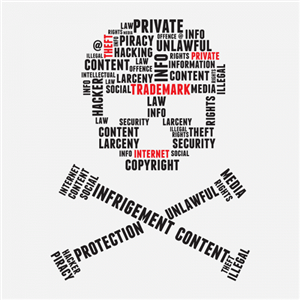 Revenues lost to piracy will reach nearly $52 billion by 2022, according to a report from digital TV research. And this just covers revenue lost on TV episodes and films, not other sectors such as sports or pay TV.
Revenues lost to piracy will reach nearly $52 billion by 2022, according to a report from digital TV research. And this just covers revenue lost on TV episodes and films, not other sectors such as sports or pay TV. In its report on trends in 2018, digital platform security provider, Irdeto outlines the increasing threat that operators face from piracy.
According to Mark Mulready, Vice President Cybersecurity at Irdeto: “Live sports rights can be a key differentiator for pay TV operators and broadcasters, who pay large licensing fees to acquire the rights to broadcast such events in their regions.
"However, operators and broadcasters could experience subscriber churn and reduced advertising revenues due to the lower number of legitimate viewers.”
With piracy a major and growing problem for the media industry, how can we go about combatting it?

1. Educate consumers

1. Educate consumers
We need to reach the consumers who are fuelling the piracy businesses, change their minds and their consumption habits.
Although 52% of respondents from around the globe admitted to watching pirated video content, nearly half of these (48%) said they would stop (or watch less) illegal content after learning about the damage that piracy causes the media industry.
If they are not convinced by the damaging effect their consumption is having on the media industry, there are other arguments we can put forward.
In a discussion on its survey results, Irdeto suggests a few different education initiatives. We could explain to consumers that piracy is often linked to criminal organisations or that pirated content can contain malware that steals consumers’ personal information, for example.
2. Meet consumers’ expectations
The industry needs to recognise that it’s competing with illegal as well as legal entities, and provide a superior service that will attract consumers. Mulready emphasises that pirate services shouldn’t be underestimated as competitors.
“Many pirate OTT services have professional looking websites and services,” he says.
“They often offer thousands of channels including live sport, VOD and movie titles, as well as support and money-back guarantees, with bundles to appeal to specific markets. These illegal services offer cheap access to pirated content and sometimes even content that is not otherwise available in the region.”
These services also offer access to content via multiple devices. In fact Irdeto’s survey on piracy consumption detected a shift in some countries, particularly amongst 18-24 year olds, to watching pirated content via mobile devices rather than laptops. For this reason, Mulready says:
“It is crucial for operators to be able to reach consumers on any device, while securely delivering premium content and a great user experience.”
3. Use content protection technologies
As well as persuading consumers not to watch pirated content, we need to take measures to prevent pirates from stealing content. Some of the technologies we can use to protect content include: forensic watermarking technologies, artificial intelligence (AI) and machine learning. “AI enables detection of illegal streams through semantic analysis of social media advertisements and/or web page indexes. It also enables inspection of visual elements in the re-distributed content, matching it to the original source,” says Peter Oggel, Chief Technology Officer at Irdeto. “There is also an opportunity to improve on this analysis with Machine Learning,” he notes.
4. Partner with law enforcement, industry bodies and agencies
However effective our content protection technology, we need to be working closely with law enforcement and other agencies to ensure that once pirate services are identified, they are shut down. Irdeto predicts some positive changes to legislation on the horizon, which will force all parties to work more quickly to shut down piracy services. “The speed at which illegal content is removed can be hindered by the response times of ISPs or hosts,” says Mulready. “Over the next year we expect that ISPs may be required to act quicker against illegal content, a measure that’s likely to encapsulate social media brands as well.”
Find out more about the content protection technologies and legislation that will protect content from piracy.
Peter Oggel and Lucas Catranis, Director, Piracy and Cybercrime Management, Irdeto will present at the:

REGISTER NOW
Peter Oggel and Lucas Catranis, Director, Piracy and Cybercrime Management, Irdeto will present at the:

REGISTER NOW
